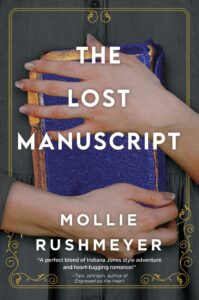By Mollie Joy Rushmeyer, @mollierushmeyer
Is there any word more reviled to a writer than “proposal”? All right, yes, I have actually heard some writers love writing their book proposals. These are probably the same people who consider chocolate-covered raisins candy and a root canal a lovely way to spend an afternoon. Of course, I jest. But this is for those of us who struggle with the task of writing a winning proposal to entice publishers to offer a contract for our books. It doesn’t always come easy.
But maybe you find yourself in the blessed position of having a publisher request a proposal after a writing conference or your agent will need a proposal to shop around your finished manuscript to publishers on your behalf. Where do you start?
What I’ve learned after writing so many of these babies at this point—and I mean, A LOT—is that having them organized in a certain way and remembering a few key tips makes them bearable. Perhaps—Dare I say?—even enjoyable to write.
Each publisher or literary agency, if you have an agent, will have differences in how they’d like your proposal laid out (some may even have a template guide) or may want different information included. So, be sure to check their website or check with your agent. If they do not have a template, I suggest looking up examples as a visual.
Here are some of the basics most proposals should have as well as things to remember that will hopefully help you write a winning proposal and catch the eye of your dream publisher:
- Your first page is your title page, similar to when you may have written essays in high school or college. It’s your or your literary agency’s contact information and logo, your manuscript’s working title by ____(your name), and copyright at the bottom of the page with your name and current year.
- The second page is to give the publisher/acquisitions editor a taste of the story you are presenting to them. It should include in list form, typically each on its own line, and centered on the page: today’s date, the working title again (if contracted, this will likely change), your name as the author, the hook** (more on this in a minute), who your target audience is by age and what kind of person will enjoy your story (For example, this was mine on a recent proposal: Women between the ages of 25-65 who enjoy Christian romance, plenty of humor, and a touch of British charm.), category or genre of the story, current or projected word count, and what’s included in the proposal, like synopsis and sample chapters.

**The hook is typically 1-2 sentences at most which sums up the crux of the story in an interesting way to “hook” the reader. Here’s one I wrote for my debut published novel, The Bookshop of Secrets: The only way an ex-trafficking victim can piece her life together is to solve the puzzle of a lost family treasure, if it even exists.
- Next, include a synopsis for the book, single-spaced with an extra space between paragraphs. This should give the entire plot away. No surprises. The publisher wants to know if you can carry a story all the way through, see your character arc, climactic moment, resolution at the end, everything. Again, every publisher is different, but I’ve tended to keep them somewhere between 3-6 pages. Closer to 5-6 is my sweet spot. Long enough to inject my writing voice, the character personalities, etc. without too much extraneous detail.
- After the synopsis, comes your author bio. Tell a bit about yourself, who you are as a writer, your “brand” of writing, and if you’ve finaled/won any writing awards. Keep it to a paragraph or two.
- Then you want to include the often-dreaded platform numbers. I know, I know. I don’t love this part, but a publisher will want to see your social media numbers. So, be sure to plug in how many followers you have on any social media outlet you’re active on and the url where they can find you there. No need to include that MySpace page you haven’t touched in two decades. Also, include if you have a newsletter, how many subscribers, and what your open rate is.
- Now you get to dream a little. This is your chance to tell the publisher your ideas for marketing your book. Do you have any radio or news connections? Are there any authors who would partner with you for an endorsement? Do you have any unique promotional ideas?
- Comparable titles—you’ll want anywhere from 3-5 comp titles. This means you need to find other books with similar themes to compare your story to. I was always hesitant on this one at first. I didn’t want it to seem like there was a book out there too similar to mine (of course, you don’t want it to be exact). But you actually do want to show that there’s already a market for what you’re writing. You don’t want to go in saying there’s nothing like my story. Because then, how would the publisher find an audience for your book? If I can say, people who enjoyed ____ will enjoy my story with similar themes, that’s great! That’s what you want.
- Sales figures for any previously published books.
- Last but not least (in fact, probably most important), your sample chapters. Include the first 3 chapters of your manuscript. Polished, polished, polished! To show them your voice, the characters, and hopefully something engaging, to entice them to want more.
I know! It’s a lot. But this is the recipe for success. Take your time, do your best, have a writing partner read it over, and when you’re ready, send it with a prayer. Blessings to you in all of your writing endeavors!
In the vein of The Library of Lost and Found by Phaedra Patrick, a priceless manuscript could be one woman’s key to finding her missing grandmother—and to her own second chance.
It’s not just Ellora Lockwood’s home that’s being emptied as she prepares to sell—her heart seems to be empty too. Since the mysterious disappearance of her beloved Grandma June and separating from her husband, Alex, Ellora has felt adrift. Then comes an invitation from Alex to teach history at a summer program at Alnwick Castle in England. He’s even found information about the location of a medieval manuscript that was her grandmother’s obsession before she vanished.
Warily, Ellora accepts Alex’s offer. Surrounded by lush English countryside and captivating history, she pieces together clues about the manuscript’s whereabouts—and uncovers new questions. Could someone have been sabotaging her grandmother’s work? Anonymous threats lead Ellora to suspect she too may be in danger, but as she and Alex work together, she’s finding strength, new purpose and the courage to see this quest through, wherever it may lead…

Mollie Joy Rushmeyer writes “Contemporary Fiction with a Heart for History.” She loves to write inspirational fiction in contemporary settings with fascinating historical elements, people, objects, and stories woven throughout. A modern girl herself, she wouldn’t want to go a day without modern plumbing. But she’s always felt a special connection to the past. The legacies and lives left behind are like gifts waiting to be unwrapped, and she shares this blend of history and contemporary living with readers.
A born and bred Midwestern gal, Mollie, makes her home in Minnesota with her husband and two spunky daughters. She is not only a bibliophile (the dustier the better, in her opinion), she’s a true anglophile at heart. Tea and coffee fuel her travels, by Google maps at least, and her passion for the written word.
Her debut novel, The Bookshop of Secrets, with Love Inspired Trade/Harlequin released October 25th, 2022. And her second, The Lost Manuscript, will be available August of 2023.
She’d love to connect through social media: https://www.facebook.com/mollie.rushmeyer and https://www.instagram.com/molliejoyrushmeyer/
And don’t forget to sign up for her newsletter (visit molliejrushmeyer.com) for vintage recipe reboots, history mixed with modern living, tea and book pairings, exclusive giveaways, and a FREEBIE pdf download “10 Vintage Hacks for Modern Homes.”



Comments 1
Mollie Joy,
Great article and insight about writing a proposal. Thank you. I wrote my book on this topic which has over 150 Five-Star reviews as a frustrated acquisitions editor. I hope it helps many more writers.
Terry